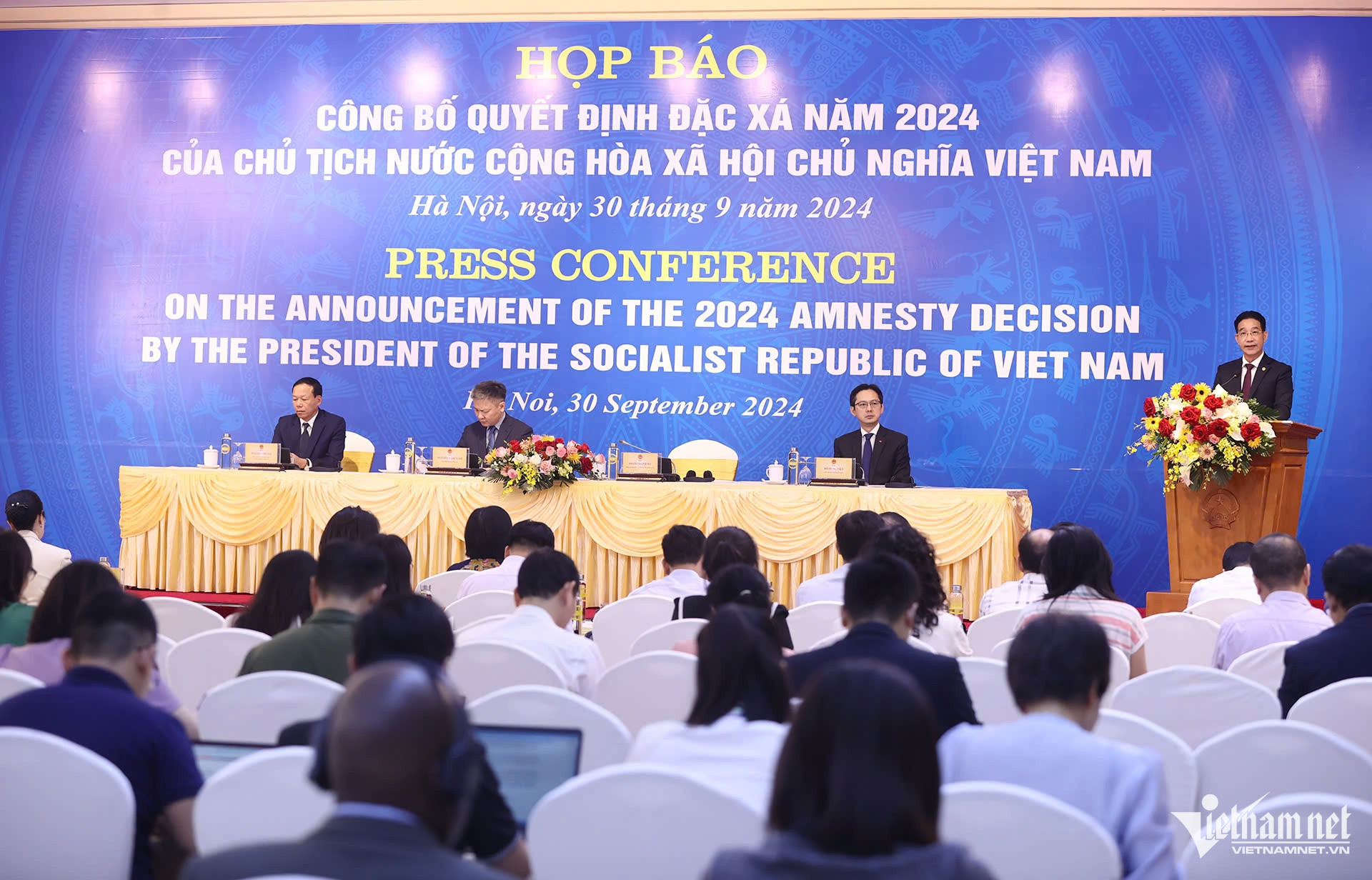
Party Chief and President To Lam has decided to pardon 3,763 prisoners who are currently serving sentences and two others who had their sentences temporarily suspended.
This decision comes as the nation celebrates the 79th anniversary of National Day and the 70th anniversary of the Capital Liberation.
During a press conference held this morning, the Deputy Chief of the Presidential Office, Pham Thanh Ha, confirmed these figures.
He emphasized that the 2024 amnesty underscores the humanitarian traditions of the Vietnamese people and the leniency policies of the Party and the State. It aims to encourage reformed offenders to reintegrate into society positively.
The amnesty also acknowledges the inmates' rehabilitation efforts and good behavior while incarcerated, representing a successful collaboration between the prisons, the inmates' families, related governmental bodies, and society in executing the Party and State’s criminal policy strategies.
Ha explained that the process for selecting amnesty candidates was rigorous, transparent, fair, democratic, and in strict accordance with the law. It ensured that only those who truly met the legal conditions were considered, preventing any undeserving cases from being granted amnesty.
Additional penalties such as bans from holding certain positions, house arrest, fines, damages, and other civil obligations still apply to the pardoned individuals as mandated by law.
This year's amnesty reflects the dual policy of strictness and leniency that characterizes Vietnam’s criminal justice approach - punishing wrongdoing while also providing opportunities for rehabilitation and societal reintegration.
Ha highlighted that amnesty demonstrates the superior and humane policies of the Party and State towards reformed criminals. It also showcases the national tradition of forgiveness and compassion.
"In Vietnam, every act of lawbreaking is handled according to the stipulations of Vietnamese law. Therefore, all the inmates included in this amnesty have undergone due legal processes at various judicial levels, ensuring fairness and non-discrimination in the implementation of the law," Ha stressed.
Amnesties provide inmates an opportunity to reflect on their mistakes, assess their rehabilitation outcomes, and resolve to abandon their criminal pasts.
According to a report by the Ministry of Public Security, the majority of those previously amnestied have shown good reformation, successfully reintegrating into the community, stabilizing their lives, achieving success, and contributing positively to societal activities.
Tran Thuong